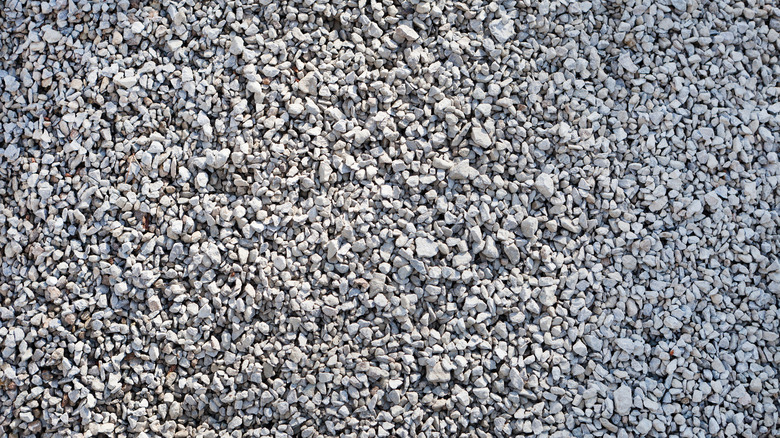The Important Difference Between Limestone & Gravel
While there are several differences between the two, the key difference between limestone and gravel is their compositions. Limestone, made from calcium carbonate, takes millions of years to form. These sedimentary rocks are born from the decay and fossilization of marine organisms — think coral and clams. Gravel, on the other hand, is like a melting pot of a lot of different rock pieces, including limestone, basalt, and sandstone. Put simply, limestone is a type of rock that is formed by organisms, while gravel is a mixture of many different rocks.
Both limestone and gravel are aesthetically pleasing and have a variety of uses. But when should you use one over the other? And what other qualities do these materials have that would convince you to use them in your own DIY landscaping projects? Before heading to your local hardware store to make a purchase, make sure you have a rock-solid foundation on the ins and outs of these two materials.
Other differences between limestone and gravel
When you think of rocks in a driveway or by a river, you typically are thinking of gravel — irregular shapes, sizes, colors, and materials, all mixed together. Due to weathering, gravel also tends to have a smoother appearance than crushed limestone. Crushed limestone is sharp and rough with a grey or white color.
Another significant difference between gravel and crushed limestone is the amount of maintenance they require. Because gravel is more rounded and smoother, it doesn't stay in place very well, meaning that it needs to be raked rather often. Crushed limestone, on the other hand, stays in place better due to its jagged edges. You won't find yourself needing to rake and adjust crushed limestone paths like you would gravel.
Other uses of limestone include as a material for retaining walls due to its customizability and curb appeal qualities. And because of its strength, limestone is a preferred ingredient in concrete. Additionally, if you have a dying lavender plant, adding limestone can help bring it back to life by raising the soil's pH.
If you're making a new driveway or walkway, either gravel or crushed limestone is a great option. Just know that with gravel, you might experience more loose rocks (and potentially rocks in your shoes!). If you have a flower bed full of weeds, adding gravel can get rid of and prevent weed growth. If you are looking to enrich your soil and help your plants thrive, crushed limestone might be your best bet.

